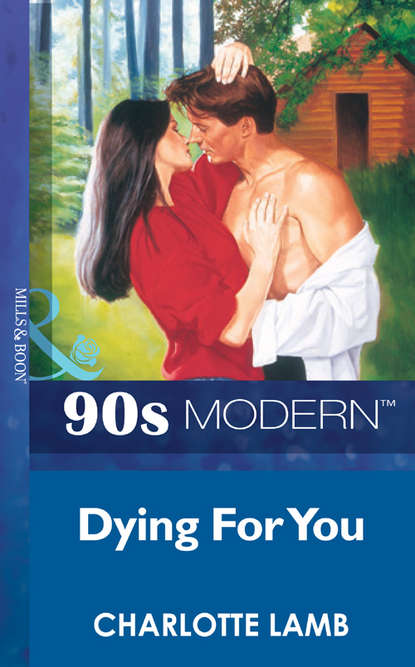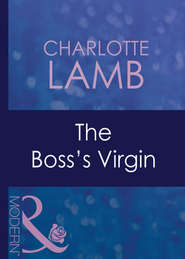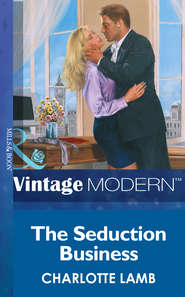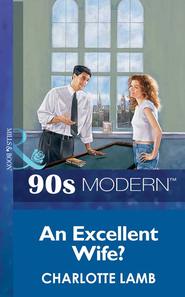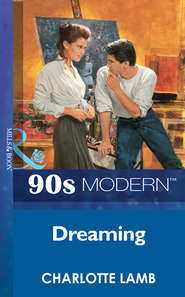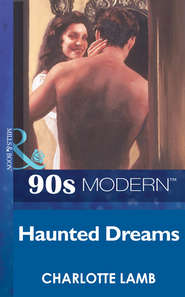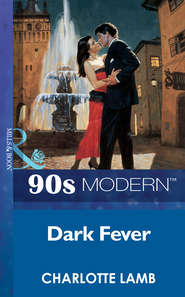По всем вопросам обращайтесь на: info@litportal.ru
(©) 2003-2025.
✖
Dying For You
Автор
Год написания книги
2018
Настройки чтения
Размер шрифта
Высота строк
Поля
Now Annie would be living there alone, and she was finding it hard to adjust to that. She had never lived alone before. Before she met Philip she had lived with her mother and stepfather and her two stepbrothers in London. The family had all been relieved when she moved out: the house had been overcrowded, and Annie had never got on with her stepfather. She had barely seen any of them since.
Living alone was faintly nerve-racking. She listened to the silence: the only sound was the low hum of the central heating system, of the fridge in the kitchen. There were people living all around her, yet they were so quiet that it was like living alone, on the moon.
Every flat was occupied, in fact. This was a very popular apartment block; there was a waiting list of tenants wanting flats. A number of celebrities could be seen coming in and going out; often they had other homes and only kept their flat in this block for trips to London. It was well managed, comfortable, with a swimming-pool, saunas and a very well equipped gymnasium.
Life was easy here: lifts whisked you up and down, there was always a porter on the door, your garbage was disposed of by simply pushing it into a chute next to the lift. There was even an underground car park so that if fans did ever find out where she lived and waited outside she would be able to drive out of the building without being stopped.
Annie had felt totally safe there. Until now.
But it was stupid to let the phone call prey on her mind. After all, it hadn’t been obscene, just some stupid joke by one of the band, probably.
Yet as she climbed into bed she was still thinking about the call. If it was just a joke, why did it bother her so much? It did; she couldn’t deny it. The words kept ringing in her head. Remember me. Remember me? Had it been a question, or a demand?
Whichever it had been the intonation had somehow been disturbing, no doubt because she was here alone, for the first time in her life, feeling abandoned, left behind.
Tonight she was an easy target for whoever had rung. But nobody could have known that. She had tried to fool everyone at the wedding, tried to be the life and soul of the party afterwards—at all costs, Philip and Diana mustn’t guess at her real mood. They had every right to take happiness when they found it; she didn’t want to ruin their big day.
She wasn’t a teenager any more; she was twenty-five, for heaven’s sake! She could look after herself; she had flown the Atlantic several times, could speak French and Italian quite well, was learning Spanish—these days, as Philip said, music was an international business and meant a lot of travelling. The more languages you knew, the better.
So stop feeling sorry for yourself! she thought crossly. You’ve got plenty of life skills; you can manage on your own.
She could drive a car, cook; she had even had self-defence training and could throw a man over her shoulder if the need arose. Surely to heaven she could learn to live alone, and she could cope with grief and loss. You could cope with anything if you had to.
She turned over and settled to sleep, and some time during the night she vaguely heard the phone begin to ring, then cut out as the machine took over, but she was beyond caring by then.
In the morning she was in a rush to get to work, so she didn’t even bother to listen to the answering machine; she simply left it switched on.
The photo session was boring. She always felt like a dummy being arranged in a shop window, and her face ached from smiling by the time it was over.
‘Try to look happy, love!’ urged the photographer gloomily.
‘Sorry, I hate having my photo taken!’ she said.
‘It shows,’ the photographer told her. ‘Relax. Look, just a few more and we’re finished.’
The band lined up behind him and made elephant’s ears with their hands, and she laughed naturally.
‘That’s better!’ the photographer said.
The drummer, a huge boy of twenty called Brick because he was built like a brick wall, grinned at her as they all walked away. ‘I read in a book once that primitive tribesmen think that when you take their picture you’re stealing their souls—is that what you think, Annie?’
He was the band’s leading joker; the others all chuckled.
‘I just hate pictures of myself!’ she muttered, wondering if it had been Brick who had rung her last night, and he looked down at her slanting vivid green eyes, her sleek black hair and the small, pale-skinned triangular face which some journalist had not long ago described as giving her the look of a kitten caught out in the rain. That had made the band laugh their heads off! But it had infuriated Annie.
‘You can’t be serious!’ Brick said, shaking his head at her. ‘You’re amazingly photogenic, love! And you should be used to cameras by now; your face is always in some magazine or other these days.’
She shrugged without answering. Her dislike of cameras was another of her instinctive reactions, a gut feeling based on nothing rational, purely primitive, no doubt. People never understood; she rarely tried to explain any more.
‘Did you ring me last night, Brick?’ she asked, and he looked blank.
‘Ring you? No. Did you ask me to? I don’t remember anything much about the wedding after the reception started.’
The others all roared with laughter. Annie smiled wryly. No, it hadn’t been Brick, or, from the expressions of the rest of the band, any of them, either. She knew them well enough to be sure she would have picked up a self-conscious expression if the phone call had been a joke by one of them.
She and the band rehearsed for hours, not breaking for lunch, just having a yoghurt and an apple some time during the day. Philip got angry if she put on weight. It ruined the image he had spent years building up.
He was always telling her, ‘Image is everything in this business! It isn’t what you are, it’s what they think you are that matters, and you have to be certain always to look the way they think you should.’
The public saw her the way Philip intended they should—a street singer, small, sad, lonely, defiant.
She wore her long black hair down, framing her pale face. Her make-up highlighted her big eyes, her wide mouth. Her stage costumes were simple and inexpensive; she wore mostly black, accenting her slenderness, her frailty. And although the songs changed with the years, the mood of her singing remained the same. Her fans liked her that way.
Sometimes, though, Annie felt trapped inside a persona Philip had created but which she wasn’t sure fitted her any longer, even if it had when she first began singing.
‘Missing Phil and Di?’ Brick asked her as they left the rehearsal rooms. ‘Come and have a curry with us; we’re going to that Indian place down the street.’
She shook her head. ‘Too fattening. I’ll eat at home; see you all.’
When she got home she automatically switched on the answering machine while she was slitting open her private mail, all of it from friends in the music business. There was a letter from Philip’s office about the forthcoming tour, signed in his absence by his secretary, a telephone bill and a postcard from Budapest from a previous member of the band who had left to join another group, who were touring Hungary.
Annie read that first, smiling over the few scribbled words, and then her head lifted in shock as she heard the whispering voice on the answering machine. She had been so busy all day that she had forgotten last night’s crank call, but she remembered now as he said softly, ‘Remembered me yet?’
The phone clicked off again, but that wasn’t the end of it. The recording whirred on again. He had rung a second time; this time he whispered, ‘I remember you, Annie. I remember everything.’
Annie felt ice trickle down her spine. She stared at the machine, waiting, but there was nothing else on it; it clicked off.
Who on earth was it? Not Brick. It wasn’t one of his silly jokes. These phone calls were no joke. They were too disturbing to be funny. Were they veiled threats? Some sort of come-on meant to intrigue her? She had no idea what was behind them, but one thing was certain. She had never heard that voice before.
She was sure she didn’t know this man, that they had never met, or if they had it had been so brief, so casual, that she had simply forgotten all about it.
Why hadn’t he? She shivered, frowning. It was scary to think that out there was a man who thought he knew her when he didn’t. Was it some crazy fan who had started to believe his own fantasy? She had heard about things like that; it hadn’t occurred to her that it might actually happen to her.
And that accent of his... It was odd in some indefinable way, perfectly good English, but there was a faint note occasionally that made her wonder if he was a foreigner.
She was very aware of being alone in the flat. It was night again, very quiet. Was she the only person awake in the whole block of flats?
Walking over to the window, she looked out into the London sky, glowing with sulphurous yellow light from the street-lamps below. Annie gazed at the tall houses opposite, some rooms lit, others dark. There were people in all those houses, people in the other flats above and below her. Yet she felt intensely alone, and she was frightened.
The phone rang and she jumped violently. Swinging round, she stared across the room. She had forgotten to put the answering machine on again.
Well, she wasn’t answering him. She would let it ring and ring; he would give up in the end, believing she was out.
She went to the bathroom and ran the shower full on to drown the sound of the phone, had a lengthy shower. As she switched off the jet of water and stepped out, wrapping herself in a towelling robe, the flat was silent again and she heaved a sigh of relief, but as she walked towards the kitchen in bare feet the phone began to ring again.
She angrily shut herself in the kitchen and made some supper: a small mixed salad sprinkled with chopped nuts and fruit. The phone still rang and rang.
He wasn’t reacting the way she had thought he would. Why wasn’t he giving up? Surely it must be obvious that she was out?





